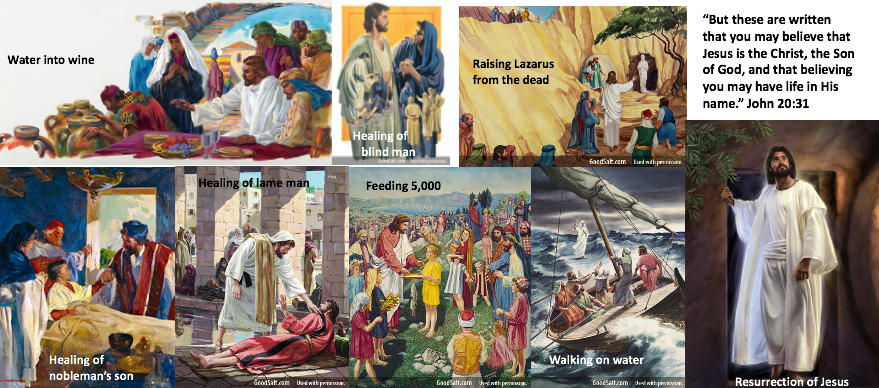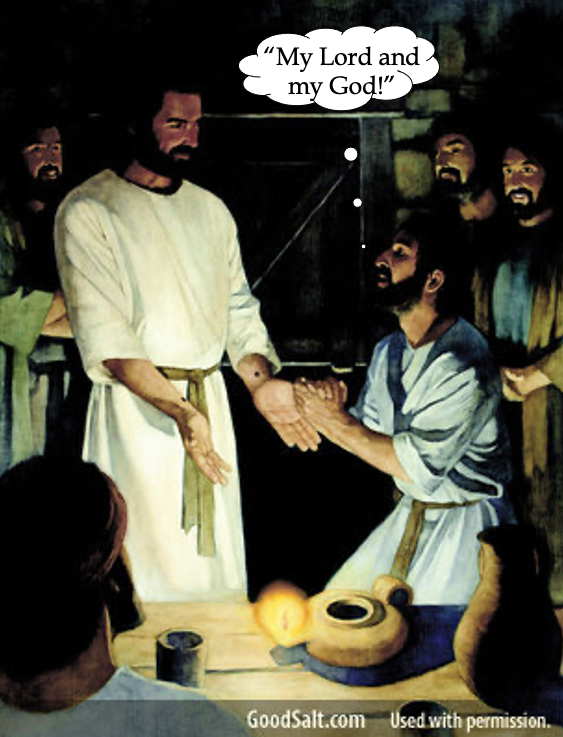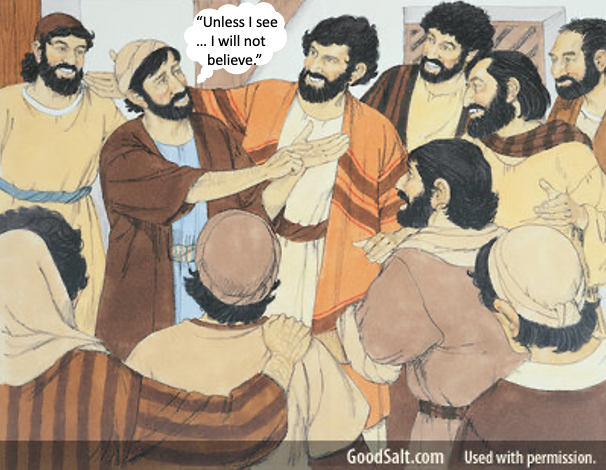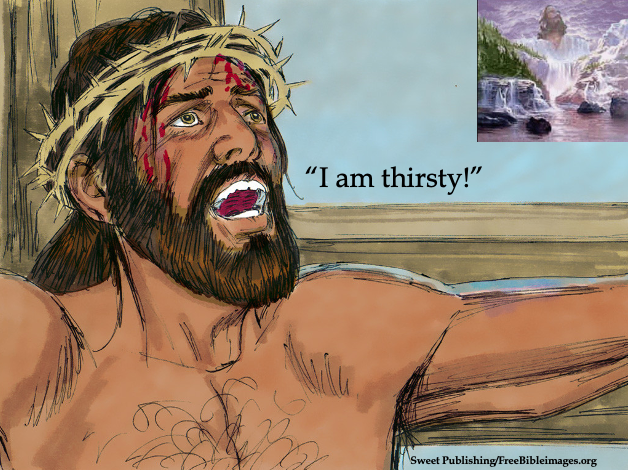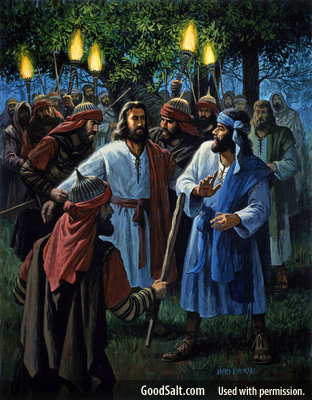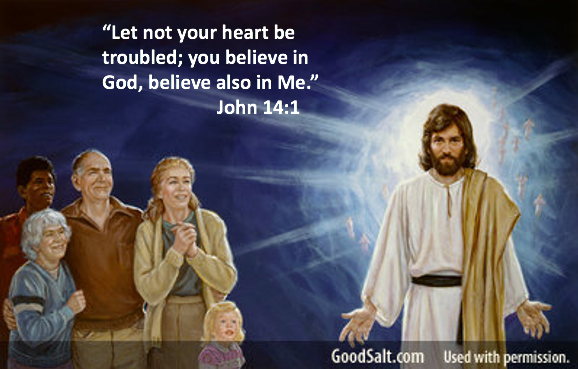“30 And truly Jesus did many other signs in the presence of His disciples, which are not written in this book; 31 but these are written that you may believe that Jesus is the Christ, the Son of God, and that believing you may have life in His name.” John 20:30-31
“What must I do to get to heaven?” This is the most important question you will ever ask. It is far more important than asking:
– “Who will I vote for in the next presidential election?”
– “How much money do I make?”
– “What do other people think of me?”
– “How many educational degrees do I have next to my name?”
– “What kind of job do I have?”
– “Where do I live?”
– “Am I married?”
– “How many children do I have?”
– “Am I successful at what I do?”
– “Am I happy?”
By far the most important question you will ever ask is, “What must I do to get to heaven?” To put it another way, “What must I do to have eternal life?” If you have these questions, the most important book of the Bible for you to know and understand is the book of John. It is the fourth book of the New Testament. This book was written to non-Christians. While the rest of the Bible speaks primarily to those who know Jesus Christ as their personal Savior, John’s gospel has in mind those who do not know Christ as their personal Savior.
In the gospel of John, we are told over and over again what we must do to get to heaven. Hopefully, before you finish reading this article you will at the very least know what God says you must do to get to heaven.
Please understand that what I am going to share with you is from the Bible. The Bible is God’s Word. We are told, “All Scripture is given by inspiration of God, and is profitable for doctrine, for reproof, for correction, for instruction in righteousness” (2 Timothy 3:16). The word “inspiration” (theopneustos) literally means “God-breathed.” 1
“All Scripture” includes both Old and New Testaments. Every word in the Bible is God-breathed or from the mouth of God. “There are no errors in the Bible. Not on theology. Not on science. Not on history. Not on any detail. The Bible is inerrant since it is God’s Word and God does not err.” 2
So when we read the Bible we are reading the very words of God. The Scriptures did not originate from humans beings. The Bible tells us, “20 No prophecy of Scripture is of any private interpretation, 21 for prophecy never came by the will of man, but holy men of God spoke as they were moved by the Holy Spirit.” (2 Peter 1:20-21). God the Holy Spirit directed these different human authors to write each word down without error.
Since “all Scripture is inspired by God, then all Scripture is profitable for teaching (instructing you in the truths that you need to know), for rebuking (reproving you for what you’ve done wrong), for correcting (showing you what is right), and for training in righteousness (guiding you to approach life as God intended it to be lived)” 3 (2 Timothy 3:16). So as we look at what God says about how to receive eternal life, we need to be open to God’s Word giving us “doctrine” or truths we need to know about how to get to heaven. His Word may give us “reproof” and show us what beliefs about salvation we have that are wrong. The Bible may also give us “correction” and show us the right way to believe. And finally, the Bible may give us “instruction in righteousness” so we may approach the way to heaven God’s way.
In John 20:30-31, the apostle John summarizes the purpose of his book. “30 And truly Jesus did many other signs in the presence of His disciples, which are not written in this book; 31 but these are written that you may believe that Jesus is the Christ, the Son of God, and that believing you may have life in His name.” (John 20:30-31). John reports that he was selective in recording miraculous “signs” that appeared in his gospel. Many “other signs” were performed by Jesus which are not recorded in this book. The word “signs” (sēmeia) refers to Jesus’ miracles and is intended to signify something about Jesus. 4 They are intended to tell us something about His Person and His character. John selected some of the most convincing words and works of Jesus which point to Who He is. Each of these miraculous signs is a picture of salvation:
1. Turning the water into wine at Cana (John 2:1-11). This miracle pictures new birth. Christ can transform the old life into a new life.
2. Healing of the nobleman’s son at Capernaum (John 4:46-54). This sign illustrates that the life-giving word of Jesus can give spiritual life no matter what the circumstance or condition of the recipient.
3. Healing the lame man at the pool of Bethesda (John 5:1-15). We learn from this miracle that Jesus has the power to cure spiritual paralysis so we can walk spiritually.
4. Feeding the five thousand near Bethsaida (John 6:1-14). This sign shows that as the Bread of Life, Jesus can permanently satisfy our spiritual hunger for eternal life.
5. Walking on the water (John 6:15-21). This miracle demonstrates that Jesus can give peace to the person devastated by life’s storms and take us where we could never go on our own.
6. Healing of the man born blind at Jerusalem (John 9:1-41). This miraculous sign demonstrates that as the Light of the world, Jesus can give spiritual sight to the spiritually blind so they can believe in Him.
7. Raising Lazarus from the dead at Bethany (John 11:1-44). This miracle shows that as the Resurrection and the Life, Jesus guarantees a future bodily resurrection and never-ending life to all who believe in Him even though they were once spiritually dead.
8. Raising Jesus from the dead outside Jerusalem (John 20:1-29). This last and greatest miraculous sign shows that Jesus is God and He has the ability to give us life that never ends the moment we believe in Him.
The reasons John records these eight miraculous signs are given in John 20:31. “But these are written that you may believe that Jesus is the Christ, the Son of God, and that believing you may have life in His name.” John recorded these miracles to arouse faith in those who have never believed “that Jesus is the Christ, the Son of God.”
Through these miracles John has revealed that Jesus is the long-awaited “Christ,” the promised Messiah-God of Israel (John 1:41; 4:25-26, 29, 42; 6:69; 7:26-27, 31, 41-42; 9:22; 10:24-25; 11:27; 12:34). He is “the Lamb of God who takes away the sin of the world!” (John 1:29; cf. Isaiah 53:5-10). He is “the Christ, the Savior of the world” (John 4:45). Jesus is not just a messenger or prophet. The Old Testament says of this coming Messiah, “For unto us a Child is born, unto us a Son is given; and the government will be upon His shoulder. And His name will be called Wonderful, Counselor, Mighty God, Everlasting Father, Prince of Peace.” (Isaiah 9:6). This Messiah is none other than the “Mighty God.” Jesus did miracles that only God could do. No other religious leader or founder predicted they would raise themselves from the dead. But Jesus did on several occasions before His crucifixion (John 2:19-21; 10:17-18; Mark 8:31; 9:31; 10:33-34; 14:27-28). And no other religious leader or founder actually rose from the dead, but Jesus Christ did, proving that He was God (Romans 1:3-4).
John also showed through these miracles “that Jesus is the … Son of God.” Not only did Jesus claim to be the Son of God or God Himself (John 5:21-23; 8:58-59; 9:35-37; 10:25-36; 17:3, 5),but His followers also claimed that Jesus was the Son of God or God Himself (John 1:34, 49; 6:69; 11:27; 19:7; 20:28, 31). His miracles confirmed He had the same divine nature as God. To be “the Son of God,” does not mean Jesus was the result of God having sexual relations with the virgin Mary as some mistakenly conclude. 5 It means that Jesus has the same divine nature as God the Father. For example, when I say, “I am the son of …,” I am saying I have the same human nature as my earthly father.
Throughout the gospel of John, Jesus claimed to be God by using “I AM” statements. Jehovah or Yahweh (YHWH) is the special name given by God for Himself in the Old Testament. It is the name God gave to Moses when He said, “I AM WHO I AM… Thus you shall say to the children of Israel, ‘I AM has sent me to you…’ Thus you shall say to the children of Israel: ‘The Lord [Jehovah] God of your fathers, the God of Abraham, the God of Isaac, and the God of Jacob, has sent me to you. This is My name forever, and this is My memorial to all generations.’” (Exodus 3:14-15). “While other titles for God may be used of men (Adonai [Lord] in Gen. 18:12) or false gods (elohim [gods] in Deut. 6:14), Jehovah is only used to refer to the one true God. No other person or thing was to be worshiped or served (Exod. 20:5), and his name and glory were not to be given to another.” 6 The prophet Isaiah wrote, “I am the Lord [Jehovah], that is My name; and My glory I will not give to another, nor My praise to carved images.” (Isaiah 42:8).
Yet Jesus claimed to be Jehovah several times in the gospel of John. Jesus said, “Before Abraham was I AM” (John 8:58; cf. John 6:35; 8:12; 10:9, 14; 11:25; 14:6; 15:1). But Jehovah of the Old Testament referred to Himself as “I AM” (Exodus 3:14-15). Jesus referred to Himself as Jehovah when He said this. Jesus also prayed, “And now, O Father, glorify Me together with Yourself, with the glory which I had with You before the world was.” (John 17:5). But Jehovah of the Old Testament said, “My glory I will not give to another” (Isaiah 42:8). Jesus said, “I am the good shepherd” (John 10:11), but the Old Testament says, “The Lord [Jehovah] is my shepherd.” (Psalm 23:1). Jesus said, “I am the light of the world” (John 8:12), but the Old Testament says, “The Lord [Jehovah] is my light” (Psalm 27:1). 7
Jesus also claimed to be equal with God in the gospel of John by claiming to have the same prerogatives as God. Jesus claimed to have the power to give life, raise the dead and judge them. Jesus said, “21 For as the Father raises the dead and gives life to them, even so the Son gives life to whom He will… 28 Do not marvel at this; for the hour is coming in which all who are in the graves will hear His [the Son’s] voice 29 and come forth—those who have done good, to the resurrection of life, and those who have done evil, to the resurrection of condemnation. 30 I can of Myself do nothing. As I hear, I judge; and My judgment is righteous, because I do not seek My own will but the will of the Father who sent Me.” (John 5:28-30). Yet the Jehovah of the Old Testament also claimed to be the Giver of life, raise the dead and judge them: “The Lord [Jehovah] kills and makes alive; He brings down to the grave and brings up” (I Samuel 2:6), and, “Let the nations be wakened, and come up to the Valley of Jehoshaphat; for there I [Jehovah – Joel 2:19, 27, 32] will sit to judge all the surrounding nations.” (Joel 3:12). Jesus also claimed that He is to be honored as God when He said, “22 For the Father judges no one, but has committed all judgment to the Son, 23 that all should honor the Son just as they honor the Father. He who does not honor the Son does not honor the Father who sent Him.” (John 5:22-23). Jesus boldly assumed for Himself powers and honor that only belong to God. 8 The apostle Thomas announced that Jesus was God near the end of John’s gospel when he said to Jesus, “My Lord and my God!” (John 20:28).
Why does John want his readers to understand and “believe that Jesus is the Christ, the Son of God”? That “believing” they “may have life in His name” (John 20:31b). Ninety-nine times John uses the word “believe” in his gospel. 9 It is interesting that God never uses the words “repent” or “repentance” in a book that was written to tell people how to obtain eternal life and get to heaven. Why?
One reason is because when one changes from unbelief to belief, he has changed his mind or repented in order to possess eternal life. Dr. Tom Constable states: “Repentance and faith are not two steps in salvation but one step looked at from two perspectives. Appeals to repent do not contradict the numerous promises that faith is all that is necessary for salvation (e.g., John 1:12; 3:16, 36; 5:24; 6:47; 20:30-31; Rom. 4; et al.). The faith that saves includes repentance (a change of mind). One changes from unbelief to belief (Acts 11:17-18). Sometimes the New Testament writers used the two terms, repent and believe, together (e.g., Mark 1:15; Acts 20:21; Heb. 6:1). Sometimes they used repentance alone as the sole requirement for salvation (Acts 2:38; 3:19; 17:30; 26:20; 2 Pet. 3:9). Nonetheless whether one term or both occur, they are as inseparable as the two sides of a coin.” 10
A second reason repentance is not mentioned in the gospel of John is because the words “repent” and “repentance” are easily misunderstood to mean something like “turning from sins” or “penance” which involve works. If a non-Christian is told to turn from his sins, he is going to ask, “How often must I do this and from what sins must I turn?” The word “believe,” however, communicates such simplicity that it is less likely to be misconstrued to include a works-oriented response. Believe means to believe or trust. 11
When the verb “repent” (metanoeō) and its noun form “repentance” (metanoia) are used in evangelistic contexts, they refer to changing one’s mind about whatever is keeping you from believing in Christ, and then believing in Him for eternal life. For example, in Mark 1:15, Jesus said, “Repent, and believe in the gospel.” Jesus was speaking to Jews who believed that eternal life could be earned through good works. Christ commands them to change their minds or “repent.” In other words, Christ commands them to change their minds about doing good works and come to God on the bases of faith alone in Christ alone.
God could have used any word He wished. He could have said it in any language. But He chose the word “believe” (pisteuō), and He used it emphatically in the gospel of John. Almost every chapter contains an invitation to believe and a reason to believe in Jesus as the Christ, the Son of God. But what does it mean to “believe”? The word “believe” means to be persuaded that something is true, and then trust or depend upon. 12 Often the New Testament emphasizes this idea of trust or depend upon by adding a preposition after the word “believe”:
“But as many as received Him, to them He gave the right to become children of God, to those who believe in His name.’ (John 1:12)
“Whoever believes in Him…” (John 3:16).
“Believe on the Lord Jesus Christ.” Acts 16:31
What are we to believe or trust in Christ for? John tells us that the reason we are to “believe that Jesus is the Christ, the Son of God” is “that believing you may have life in His name.” We are to believe or trust Christ alone to possess eternal life. John defines this “life” as “eternal” throughout his gospel (John 3:15-16, 36; 5:24; 6:40, 47; 11:25-26; et al.). Notice that “eternal life” is a present possession for those who believe in the name of Jesus. A name in the Bible represents a person. To believe in the name of Jesus is to believe in His Person.
Jesus defines eternal life in John 17:3: “And this is eternal life, that they may know You, the only true God, and Jesus Christ whom You have sent.” So eternal life is knowing God the Father and God the Son forever in a personal relationship. Getting to heaven does not mean trusting Christ to get you through the day or through your problems. Getting to heaven means trusting Jesus Christ alone to give you His gift of eternal life.
Not all facts about God are saving facts. For example, believing there is one God does not get you to heaven. Demons believe God is one but you will not see them in heaven (James 2:19). Many world religions believe God is one, but you will not see them in heaven. God is telling us in the gospel of John that to get to heaven, we must believe that Jesus is the Christ, the Son of God, that believing we may have life in His name. These are the saving facts we must believe to get to heaven.
You may ask, “What if a person stops believing that Jesus is the Christ, the Son of God? Will he or she lose eternal life?” The answer is “NO.” The results of believing in Jesus Christ for eternal life are permanent. If eternal life could be lost, it would not be eternal.
Saving faith is like a single drink of living water which never needs to be repeated. Jesus said, “But whoever drinks of the water that I shall give him will never thirst” (John 4:14a), and, “he who believes in Me shall never thirst” (John 6:35b). Saving faith is like a single look at Jesus, the Savior, much like the Israelites who looked at the bronze serpent in the desert and lived, “14 And as Moses lifted up the serpent in the wilderness, even so must the Son of Man be lifted up, 15 that whoever believes in Him should not perish but have eternal life.” (John 3:14-15). Saving faith is a decisive moment of spiritual hearing in which the voice of God’s Son effects an irreversible spiritual resurrection, “Most assuredly, I say to you, the hour is coming, and now is, when the dead will hear the voice of the Son of God; and those who hear will live.” (John 5:25).
People are not saved by drinking and drinking and drinking Jesus’ living water. They are saved by taking one drink of His living water (John 4:14; 6:35). People are not saved by staring at Christ. They are saved by taking one simple look at Him in faith (John 3:14-15)! People are not saved by hearing Jesus’ voice over and over and over again. They are saved by hearing His voice once (John 5:24-25). People are not saved by eating and eating and eating the bread of life. They are saved simply by eating the bread of life once (John 6:35, 51).
What if you only had five minutes to live, what does the gospel of John say you must do to get to heaven? Believe that Jesus is the Christ, the Son of God, that believing you may have life in His name. What if you only had five years to live, what does the gospel of John say you must do to get to heaven? Believe that Jesus is the Christ, the Son of God, that believing you may have life in His name. What if you only had fifty years to live, what does the gospel of John say you must do to get to heaven? Believe that Jesus is the Christ, the Son of God, that believing you may have life in His name. What if you are an abortionist, an adulterer, a blasphemer, a false teacher, a homosexual, a murderer, a rapist, or a thief? What does the gospel of John say you must do to get to heaven? Believe that Jesus is the Christ, the Son of God, that believing you may have life in His name. The issue is believing or trusting in Christ alone to give you His gift of eternal life.
Years ago I remember reading an article on the front page of the Pratt Tribune when we lived in Medicine Lodge, Kansas. It was about a seventh grade boy named, Sam Abrams, who packed his bags and took off on an adventure that took him halfway around the world to Australia. Some people from Pratt were afraid to travel to Wichita by themselves, let alone across the state. But Sam Abrams is no ordinary thirteen year old from Pratt. He raised money for his airfare by delivering newspapers, mowing lawns, and working at Dillons. And finally on December 27, 1992, with his tickets, passport, and visa in his hands, his parents took him to the Wichita airport. From there, Sam flew to Los Angeles, then to Sydney, and on to Brisbane, Australia where he was reunited with an old friend, Dylan Cross, who used to live in Pratt.
Getting to heaven is like getting to Brisbane, Australia, from Wichita, Kansas. You cannot make it on your own. You must depend on a person, a pilot to fly your jet airplane to your destination. You cannot get there depending on your own ability. You must depend on your pilot. In the same way, you must trust or depend upon a Person, Jesus Christ, to get you to heaven. Unlike Sam, who had to work to earn the money to pay for his travel expenses, your trip to heaven is free because Jesus, the Christ, the Son of God, has already paid for your trip in full by dying in your place on the cross and rising from the dead. All He asks is that you believe or trust in Him alone for His gift of everlasting life.
One morning at the breakfast table, a worried husband said to his wife, “We must think of the future. We ought to economize more. If I were to die, where would you be?” His wife replied, “Why, I would be right here. The question is, where would you be?”
If you were to die, where would you be? Are you certain you would go to heaven? If not you can be certain by hearing and believing Jesus’ promise when He said, “He who believes in Me has everlasting life.” (John 6:47). This is so simple that children often believe it long before adults.
When it comes to getting to heaven, Jesus is not asking you if you keep God’s commandments, because He never said, “he who keeps God’s commandments has everlasting life.” He is not asking you if you pray every day because He never said, “he who prays every day has everlasting life.” Jesus is not asking you if you go to a place of worship every week because He never said, “he who goes to a place of worship every week has everlasting life.” Nor is Jesus asking you if you have lived a good, moral life because He never said, “he who lives a good, moral life has everlasting life.” Jesus is asking you, “Do you believe in Me?” because He said, “He who believes in Me has everlasting life.”
If you have never understood and believed this before, but now you do, you can tell God this through prayer. Keep in mind that praying this prayer is not what gets you to heaven. Only believing or trusting in Jesus alone gets you to heaven. This prayer is a way of telling God you are now trusting in Jesus.
Prayer: Dear Lord Jesus, all my life I thought I had to work to get to heaven. Thank You for showing me today that You have already done all the work. All I must do is believe or trust in You alone for Your gift of eternal life. As best I know how, I come to You now as a sinner who is unable to save himself. I believe You died in my place on a cross for all my sins and rose from the dead. I am now believing or trusting in You alone Jesus (not my good life, my prayers, or my religion), to give me everlasting life and a future home in heaven. Thank You for the everlasting life I now have and for the future home I will have in heaven. In Your precious name I pray Lord Jesus. Amen.
To help you grow in your new relationship with Jesus, please go to our website at www.seeyouinheaven.life and download our Pressing On digital discipleship materials to go through with those you care about. Thank You and may Jesus Christ give You His abundant life as you learn to follow Him as His disciple.
ENDNOTES:
1. Robert Wilkin; J. Bond; Gary Derickson; Brad Doskocil; Zane Hodges; Dwight Hunt; Shawn Leach. The Grace New Testament Commentary: Revised Edition (Grace Evangelical Society, Kindle Edition, 2019), pg. 1121.
2. Ibid.
3. Tony Evans, CSB Bibles by Holman. The Tony Evans Bible Commentary (B & H Publishing Group, Kindle Edition, 2019), pg. 2217.
4. J. Carl Laney, Moody Gospel John Commentary (Chicago: Moody Press, 1992), pg. 370 cites Merrill C. Tenney, “Topics from the Gospel of John: The Meaning of the Signs,” Bibliotheca Sacra 132 (April 1975): 145-146.
5. This is the common misunderstanding of Muslims. See Norman L. Geisler and Abdul Saleeb, Answering Islam: The Crescent in Light of the Cross, Second Edition (Grand Rapids: Baker Books, 2002), pg. 249 where they write, “There are two Arabic words for ‘son’ that must be distinguished. The word walad denotes a son born of sexual relations. Jesus is definitely not a son in this sense. However, there is another Arabic word for son, ibn, that can be used in a wider figurative or metaphorical sense. A traveler, for example is spoken of as a ‘son of the road’ (ibnussabil). It is in this wider sense that it make sense to speak of Jesus as the ‘Son (ibn) of God.’”
6. Ibid., pp. 249-250.
7. Adapted from Ibid., pg. 250.
8. Ibid., pp. 251-252.
9. In the Greek Majority Text John uses the word for “believe” (pisteuō) ninety-nine times: John 1:7, 12, 50; 2:11, 22, 23; 3:12(2), 15, 16, 18(3), 36; 4:21, 39, 41, 42, 48, 50, 53; 5:24, 38, 44, 46(2), 47(2); 6:29, 30, 35, 36, 40, 47, 64(2), 69; 7:5, 31, 38, 39, 48; 8:24, 30, 31, 45, 46; 9:18, 35, 36, 38; 10:25, 26, 37, 38(3), 42; 11:15, 25, 26(2), 27, 40, 42, 45, 48; 12:11, 36, 37, 38, 39, 42, 44(2), 46, 47; 13:19; 14:1(2), 10, 11(2), 12, 29; 16:9, 27, 30, 31; 17:8, 20, 21; 19:35; 20:8, 25, 29(2), 31(2).
10. Tom Constable, Expository Notes On Acts (Garland, TX.: Sonic Light, 2010), pg. 67.
11. These ideas were shared with me by Dr. Earl Radmacher during a phone conversation on June 11, 2011.
12. Walter Bauer, A Greek-English Lexicon of the New Testament and Other Early Christian Literature: Third Edition (BDAG) revised and edited by Frederick William Danker (Chicago: University of Chicago Press, 2000 Kindle Edition), pp. 816-817.

